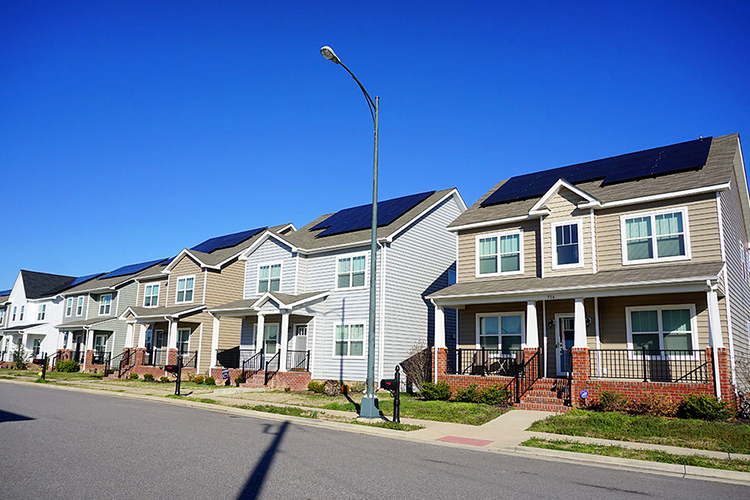Berkeley Talks: Using peer pressure to fight climate change

In adopting a different diet or driving less, a person has an effect on the planet, says Robert Frank, an economics professor at Cornell University. But not for the reason they might think.
“If you don’t do it, the world will be the same as if you do it,” said Frank, who spoke at UC Berkeley in January. “But the effect you have through your own actions are only a small fraction of the total effect you have because when you do something, other people see you do it, and they do it, too.”
Frank, author of the 2020 book Under the Influence: Putting Peer Pressure to Work, joined Dan Kammen, a professor of energy at Berkeley, at the campus’s Goldman School of Public Policy on Jan. 28, 2020, to discuss how he sees peer pressure as a powerful tool to fight climate change.
For example, someone installing solar panels on their house is the most important predictor of whether their neighbor will also install solar panels, he said. Same goes for recycling or eating less meat or taking public transportation — if your peers see you engaging in these behaviors, they’re more likely to follow suit.
And, he adds, the more often we do these things, the more likely we are to take action in other ways.
“You aren’t born into the world being a certain kind of person,” said Frank. “You become the kind of person you are through what you do. If you take these steps, you’ll become a climate advocate in the process. And if you become one, then you are much more likely to vote for candidates who will enact the robust policy changes that the climate community insists are the only way we’re gonna solve this problem.”
Listen to Frank’s talk, followed by a discussion with Kammen and a Q&A with the audience in Berkeley Talks episode #84: “Using peer pressure to fight climate change.”
This lecture was recorded by UCTV. Watch the video below.
